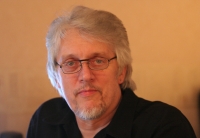On BBC Radio 4's Today programme this morning, the chairman of the Press Complaints Commission, Sir Christopher Meyer said he will be interested to see how the police investigation goes on.
You bet he will. The PCC's Code of Practice states that:
The press must not seek to obtain or publish material acquired by using hidden cameras or clandestine listening devices; or by intercepting private or mobile telephone calls, messages or emails; or by the unauthorised removal of documents or photographs.
(Clause 10: Clandestine devices and subterfuge)
There is a public interest defence available to newspapers that break this clause, i.e. it's OK to tap people's phones to get a story if it is in the public's interest to do so. So for students of journalism, here's something you might want to think about - if the NOTW were reported to the PCC (assuming none of the NOTW's staff got convicted first) and if you were the editor, how would you put together your public interest defence?
While you're pondering on that, here's some interesting background information. The PCC's code is subject to review and revision by the Editors’ Code of Practice Committee, which is chaired by Les Hinton. He also happens to be Executive Chairman of Rupert Murdoch's News International, parent company of NOTW.
Oh yes, and one of the Committee members is Neil Wallis, deputy editor of NOTW.
Filed under:
News of the World phone tapping Prince Charles Guardian BBC
Today programme PCC Rupert Murdoch journalism education

No comments:
Post a Comment